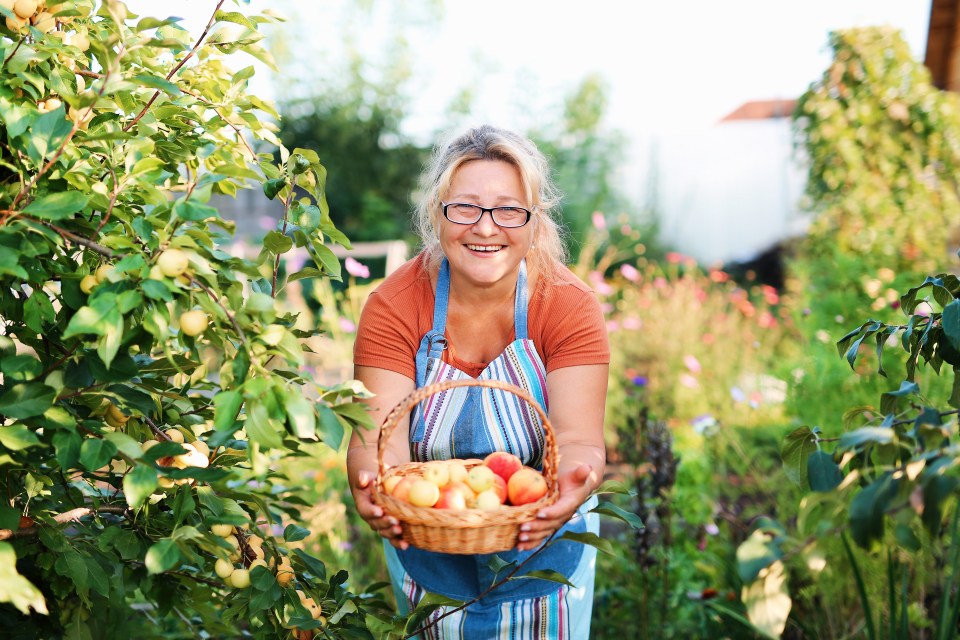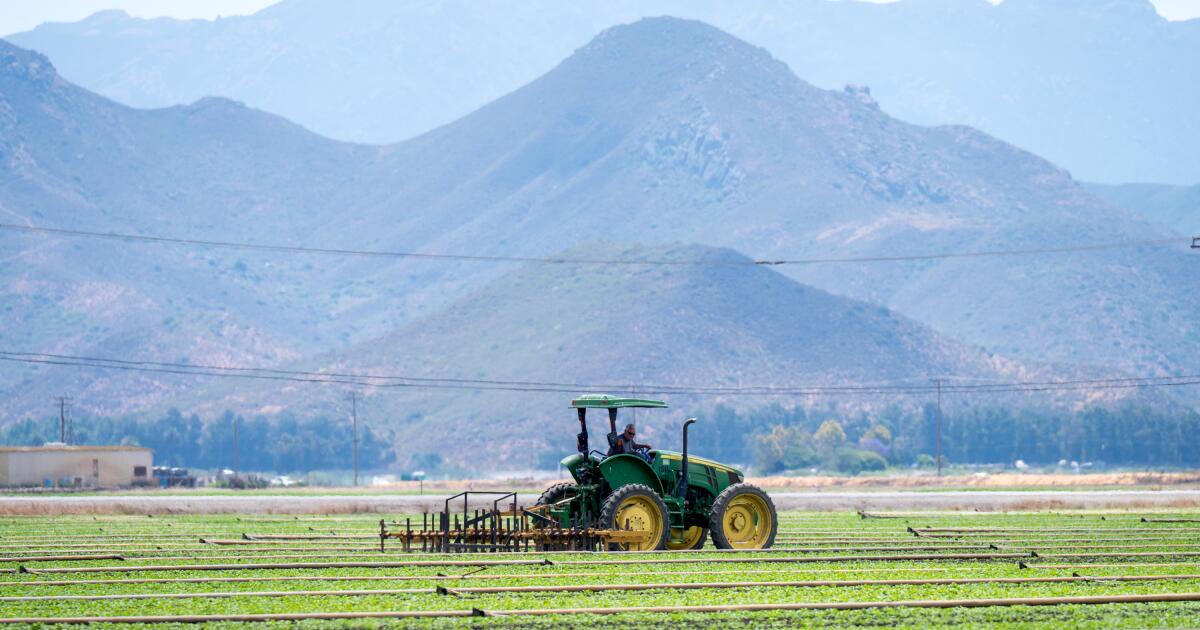As the crucial summer harvest season gets underway in California’s vast agricultural regions, farmers and their workers say they feel whiplashed by a series of contradictory signals about how the Trump administration’s crackdown on illegal immigration might affect them.
California grows more than one-third of the country’s vegetables and more than three-quarters of the nation’s fruits and nuts in the fertile expanses of the Central Valley, Central Coast and other farming regions. The industry produced nearly $60 billion in goods in 2023, according to state figures — an output that depends heavily on the skilled labor of a workforce that is at least 50% undocumented, according to University of California studies.
Without workers, the juicy beefsteak tomatoes that are ripening and must be hand-harvested will rot on the vines. The yellow peaches just reaching that delicate blend of sweet and tart will fall to the ground, unpicked. Same with the melons, grapes and cherries.
That’s why, when federal immigration agents rolled into the berry fields of Oxnard last week and detained 40 farmworkers, growers up and down the state grew worried along with their workers.
Farm laborers, many of whom have lived and worked in their communities for decades, were terrified of being rounded up and deported, separated from their families and livelihoods. Farmers worried that their workforce would vanish — either locked up in detention centers or forced into the shadows for fear of arrest — just as their labor was needed most. Everyone wanted to know whether the raids in Oxnard were the beginning of a broader statewide crackdown that would radically disrupt the harvest season — which is also the period when most farmworkers earn the most money — or just a one-off enforcement action.
In the ensuing days, the answers have become no clearer, according to farmers, worker advocates and elected officials.
“We, as the California agricultural community, are trying to figure out what’s going on,” said Ryan Jacobsen, chief executive of the Fresno County Farm Bureau and a farmer of almonds and grapes. He added that “time is of the essence,” because farms and orchards are “coming right into our busiest time.”
After the raids in Ventura County last week, growers across the country began urgently lobbying the Trump administration, arguing that enforcement action on farm operations could hamper food production. They pointed to the fields around Oxnard post-raid, where, according to the Ventura County Farm Bureau, as many as 45% of the workers stayed home in subsequent days.
President Trump appeared to get the message. On Thursday, he posted on Truth Social that “our great farmers,” along with leaders in the hospitality industry, had complained that his immigration policies were “taking very good, long time workers away from them, with those jobs being almost impossible to replace.”
He added that it was “not good” and “changes are coming!”
The same day, according to a New York Times report, a senior official with U.S. Immigration and Customs Enforcement wrote regional ICE directors telling them to lay off farms, along with restaurants and hotels.
“Effective today, please hold on all work site enforcement investigations/operations on agriculture (including aquaculture and meat packing plants), restaurants and operating hotels,” the official wrote.
Many in California agriculture took heart.
Then on Monday came news that the directive to stay off farms, hotels and restaurants had been reversed.
“There will be no safe spaces for industries who harbor violent criminals or purposely try to undermine ICE’s efforts,” Tricia McLaughlin, an assistant secretary for the Department of Homeland Security, said, according to the Washington Post. “Worksite enforcement remains a cornerstone of our efforts to safeguard public safety, national security and economic stability.”
In California’s heartland, Jacobsen of the Fresno County Farm Bureau spoke for many farmers when he said: “We don’t have a clue right now.”
Asked Tuesday to clarify the administration’s policy on immigration raids in farmland, White House spokeswoman Abigail Jackson said the Trump administration is committed to “enforcing federal immigration law.”
“While the President is focused on immediately removing dangerous criminal illegal aliens from the country,” Jackson said, “anyone who is here illegally is liable to be deported.”
Still, Jacobsen and others noted, aside from the upheaval in Ventura County last week, agricultural operations in other parts of the state have largely been spared from mass immigration sweeps.
Workers, meanwhile, have continued to show up for work, and most have even returned to the fields in Ventura County.
There has been one notable outcome of last week’s raids, according to several people interviewed: Employers are reaching out to workers’ rights organizations, seeking guidance on how to keep their workers safe.
“Some employers are trying to take steps to protect their employees, as best they can,” said Armando Elenes, secretary treasurer of the United Farm Workers.
He said his organization and others have been training employers on how to respond if immigration agents show up at their farms or packinghouses. A core message, he said: Don’t allow agents on the property if they don’t have a signed warrant.
Indeed, many of the growers whose properties were raided in Ventura County appear to have understood that; advocates reported that federal agents were turned away from a number of farms because they did not have a warrant.
In Ventura County, Lucas Zucker, co-executive director of the Central Coast Alliance United for a Sustainable Economy, a group that has often been at odds with growers over issues such as worker pay and protections, underscored the unusual alliance that has forged between farmers and worker advocates.
Two days after the raids, Zucker read a statement condemning the immigration sweeps on behalf of Maureen McGuire, chief executive of the Ventura County Farm Bureau, an organization that represents growers.
“Farmers care deeply about their workers, not as abstract labor, but as human beings and valued community members who deserve dignity, safety and respect,” McGuire said in the statement. “Ventura County agriculture depends on them. California’s economy depends on them. America’s food system depends on them.”
Before reading the statement, Zucker evoked light laughter when he told the crowd: “For those of you familiar [with] Ventura County, you might be surprised to see CAUSE reading a statement from the farm bureau. We clash on many issues, but this is something where we’re united and where we’re literally speaking with one voice.”
“The agriculture industry and farmworkers are both under attack, with federal agencies showing up at the door,” Zucker said later. “Nothing brings people together like a common enemy.”
This article is part of The Times’ equity reporting initiative, funded by the James Irvine Foundation, exploring the challenges facing low-income workers and the efforts being made to address California’s economic divide.










